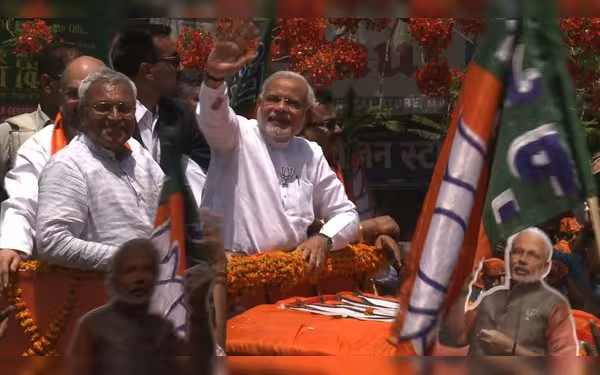Thursday, July 4, 2024 05:42 PM
Pakistan's Role in India's Democracy Revealed
- Pakistan aided Ambedkar's election to Indian Constituent Assembly
- Salim-u Zaman Siddiqui's ink innovation influenced Indian elections
- Ambedkar's impact on Indian Constitution transcended national boundaries
 Image Credits: Muslim Network TV
Image Credits: Muslim Network TVDiscover the hidden contributions of Pakistan to India's democracy, from aiding Ambedkar's election to influencing the Indian electoral system, showcasing a shared history of collaborative efforts.
Pakistan's hidden contributions to India's democracy have come to light, shedding new light on the intertwined history of the two nations. Before the Partition, Pakistan played a crucial role in strengthening Indian democracy by aiding the election of Bhim Rao Ambedkar to the Constituent Assembly in 1946. This support from Pakistani leaders paved the way for Ambedkar to become the architect of the Indian Constitution, a fact often overlooked in Indian history books.
Another significant but lesser-known connection between the two countries lies in Pakistan's scientific contributions that influenced Indian elections. The indelible ink used to mark voters in India, ensuring the integrity of the electoral process, was developed by Salim-u Zaman Siddiqui, a Pakistani scientist. This innovation, introduced during India's first general elections in 1951, has since become a cornerstone of the Indian electoral system, adopted by over 30 democracies worldwide.
Furthermore, Pakistan's support for Ambedkar's entry into the Constituent Assembly and subsequent role as chairman of the drafting committee underscored a complex interplay of political alliances that transcended national boundaries. Despite facing electoral defeats and political challenges post-Independence, Ambedkar's commitment to social justice and equality left an indelible mark on India's constitutional framework.
The intertwined history of India and Pakistan, marked by shared contributions to democracy, highlights the need to acknowledge and celebrate the collaborative efforts that have shaped the democratic fabric of both nations.













